When delving into the historical past, the prolific Julius Evola draws upon the solar effulgence of an all-conquering ancient Rome, the awe-inspiring martial prowess and unparalleled excellence of the ancient Greek city-states, and the dominating spirit of the triumphant, world-transforming ancient Aryans with an erudite brilliance not often seen in more recent writings. However, Evola’s aim extends beyond mere scientific examination and detached scrutiny. Rather, he seeks to evoke a profound awakening of the primordial spirit within each of us, bridging the connection to our present reality. When contemporary academics examine the past, its history, its philosophy, and its worldview, they tend to adopt a “positivist” orientation. Positivism, as a philosophical and epistemological framework, prioritizes empirical observation, scientific methods, and verifiable evidence to understand the world and acquire knowledge. Within the context of understanding the past, positivism serves as a valuable tool for unraveling and comprehending factual information. However, its application remains limited to factual analysis and does not extend to capturing the profound truths and multifaceted meanings that encompass the richness of human experience. In a captivating departure from this profoundly postmodern, materialistic, and scientific mindset, the erudite Evola beckons us to transcend the mere study of the past. Instead, he urges us to embark on a transformative odyssey, delving deep into its corridors to reawaken the dormant forces of primordial ancestral forms and modalities of existence. Through this immersive journey, the echoes of antiquity resurface, stirring within us a profound reawakening – a revival of ancient wisdom and intrinsic knowledge that pulses through our very being. In embracing this reawakening, we forge a powerful connection to our ancestral heritage, igniting a flame that illuminates our present path.
Evola held a profound aversion towards the bourgeois mentality, frequently characterizing it as “vegetative.” This mindset of the bourgeoisie places paramount importance on safety, security, and material comfort, while neglecting the pursuit of deeper meaning and transcendence. Its existence revolves predominantly around the pursuit of acquisition, an incessant quest to attain external possessions, driven by an underlying emptiness within. Moreover, the acquisitive worldview is both a driving force and a reflection of a uniquely modern, or postmodern hollowness, of men and civilization without a soul. In many ways, the ceaseless pursuit of material wealth by the bourgeoisie parallels the insatiable life requirements of vegetation. Just as vegetation mechanically seeks sunlight and water to sustain itself, the bourgeoisie becomes enthralled in an unending cycle of consumption and production. Both are entrapped within the boundaries of a materialistic and naturalistic existence, unable to transcend the surface of the earth and ascend to a loftier realm. Similar to vegetation, the bourgeoisie may, on occasion, catch a transient and superficial glimpse of something grander and uplifting. However, it remains transfixed, unable to genuinely elevate itself beyond the surface of its material pursuits. Similar to the philosopher in the allegory of Plato’s Cave, the bourgeoisie incessantly glimpses fleeting rays of the sun, which represent the essence of true reality. Yet, it consistently falls short of fully comprehending the profound metaphysical depths that lie beyond, leaving it trapped in a perpetual state of incomplete understanding. In parallel fashion, for the postmodern bourgeoisie, the exploration of the past does not act as a catalyst for personal elevation and inner transformation.
However, it is essential to distinguish Evola’s concept of individualism from the atomized sense of individualism prevalent in the postmodern bourgeois worldview. Unlike the shallow and excessive materialistic individualism embraced by the bourgeoisie, Evola’s understanding emphasized a deeper and more profound exploration of the self, transcending mere indulgence in the material world. In a manner akin to Nietzsche, Evola shared the belief that authentic transformation must commence within the microcosm of the individual. He recognized that this type of inner change serves as a prerequisite for broader transformations at the macrocosmic level, whether it be within the realm of politics or, ideally, at the level of civilization as a whole. Evola emphasized the significance of individual awakening and development as a crucial step towards effecting meaningful change on a larger scale. The individual and civilizational changes advocated by Evola were of a profound nature, delving far deeper than the superficial “LARPing” (Live-Action Role-Playing) that often pervades certain circles. Evola’s approach aimed at genuine transformation, transcending mere surface-level imitation or theatricality. His ideas called for a profound inner awakening and a sincere commitment to embodying higher principles, contrasting with the shallow imitation that tends to dominate certain spheres of influence.
According to Evola, rekindling the ancestral flame of the heroic past required more than just a superficial understanding and admiration of historical epochs. It necessitated a wholehearted embrace of our ancestors’ worldview, where individuals in the present would need to think, act, and live in alignment with past modalities of being. The transformation advocated by Evola encompassed a profound transfiguration of the very essence of individuals in the present, representing a complete metaphysical shift in the nature of their ontological beings. For Evola, and for those of us inspired by his call for individual metaphysical transformation, the initial step towards rekindling the spirit of our ancestors entails fully dismantling and renouncing the bourgeois mentality that resides within each one of us. In Revolt Against the Modern World, Evola writes, “Being and stability are regarded by our contemporaries as akin to death; they cannot live unless they act, fret, or distract themselves with this or that. Their spirit (provided we can still talk about a spirit in their case) feeds only on sensations and on dynamism, thus becoming the vehicle for the incarnation of darker forces.” Hence, Evola implores us to break free from the constraints of an obsessive and stagnant fixation on the downward-facing present, which serves as the fulcrum upholding postmodernity. Instead, he advocates a reorientation upwards, towards purposeful action, both internally and externally, in order to facilitate profound transformation and elevation.
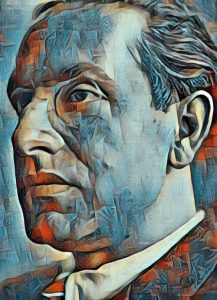 Continuing in The Revolt Against the Modern World, Evola writes, “According to traditional man the physical plane merely contains effects; nothing takes place in this world that did not originate first in the next world or in the invisible dimension.” In the present era, a prevailing perception emerges wherein a significant number of individuals equate and conflate the passivity and stability inherent to bourgeois existence as the genuine essence of life. As a consequence, countless individuals unwittingly find themselves ensnared in an enduring cycle of cause and effect, bound by their exclusive dependence on sensory experiences anchored to the material realm. This fixation on the superficial deprives them of even the slightest glimpse of profound or substantial meaning, thereby undermining and negating the potential for attaining elevated transcendence, whether on an individual or civilizational level.
Continuing in The Revolt Against the Modern World, Evola writes, “According to traditional man the physical plane merely contains effects; nothing takes place in this world that did not originate first in the next world or in the invisible dimension.” In the present era, a prevailing perception emerges wherein a significant number of individuals equate and conflate the passivity and stability inherent to bourgeois existence as the genuine essence of life. As a consequence, countless individuals unwittingly find themselves ensnared in an enduring cycle of cause and effect, bound by their exclusive dependence on sensory experiences anchored to the material realm. This fixation on the superficial deprives them of even the slightest glimpse of profound or substantial meaning, thereby undermining and negating the potential for attaining elevated transcendence, whether on an individual or civilizational level.
Evola then asserts, “A political, economic, and social order created merely for the sake of temporal life is exclusively characteristic of the modern world, that is, of the antitraditional world.” Evola’s insightful observation highlights that the erosion of timeless principles rooted in ancestral forms, which embody the essence of his perennial Tradition, leads to a simultaneous detachment from metaphysical truth. This erosion of ancestral principles goes hand in hand with a detachment from the profound truths that transcend the material realm. To counteract this, Evola fervently advocates a resurgence of transcendent understanding, urging individuals to engage with the realms of spirituality and metaphysics consciously and profoundly. By embracing the transcendent dimensions of reality, Evola posits that we can restore harmony, reignite our higher purpose, and rediscover the fundamental metaphysical truths that have become veiled to us thanks to the fragmentary nature of postmodernity. But this begs the question of what modality of being, what transcendent worldview, would replace that of the stagnant inertia of the bourgeoisie?
For Evola, this new modality of Being, distinguished by an ongoing process of Becoming rather than merely existing, is propelled forward by the transcendent quest for individual and civilizational apotheosis. It finds its most fitting embodiment in the heroic worldview. Evola’s conceptualization of the heroic surpasses conventional notions of heroism, encompassing a transcendent state of being. It embodies a spiritual and metaphysical ideal, where individuals exhibit unwavering dedication to higher principles, willingly embrace the struggle of life, and seek out and face new challenges with courage, resilience, and excellence. The heroic as envisioned by Evola encompasses qualities of self-transcendence, inner strength, and a deep connection to the transcendent realms, serving as a beacon of inspiration and a transformative force in both individual and collective contexts. In a manner strikingly similar to Evolian thought, the Flemish nationalist Ernest Van der Hallen writes, “Be radical, have principles, be absolute, be that which the bourgeoisie calls an extremist: give yourself without counting or calculating, don’t accept what they call ‘the reality of life’ and act in such a way that you won’t be accepted by that kind of ‘life,’ never abandon the principle of struggle.”
In his work Metaphysics of War, Evola expresses profound insights: “The fundamental principle underlying all justifications of war, from the point of view of human personality, is ‘heroism.’ War, it is said, offers man the opportunity to awaken the hero who sleeps within him. War breaks the routine of comfortable life; by means of its severe ordeals, it offers a transfiguring knowledge of life, life according to death. The moment the individual succeeds in living as a hero, even if it is the final moment of his earthly life, weighs infinitely more on the scale of values than a protracted existence spent consuming monotonously among the trivialities of cities. From a spiritual point of view, these possibilities make up for the negative and destructive tendencies of war, which are one-sidedly and tendentiously highlighted by pacifist materialism. War makes one realize the relativity of human life and therefore also the law of a ‘more-than-life,’ and thus war has always an anti-materialist value, a spiritual value.”
To provide further clarity, it is important to delineate between the inner and outer manifestations of war. The struggles and conflicts that unfold in the physical realm, exemplified by the intense trials and tribulations of combat, are referred to by Evola as the “lesser holy war.” In contrast, the “greater holy war” encompasses the ongoing struggle we all engage in within ourselves, as we strive to overcome and transcend the limitations that constrain us. Both forms of struggle and combat possess significant value, as they have the potential to initiate elevated transcendent states. However, it is the “greater holy war” fought within the depths of our own interiority that holds the utmost spiritual fulfillment. This internal battle serves as a catalyst for personal transformation and allows us to rediscover the heroic mindset that once animated the life force of our ancestors.
On the nature of the relationship between inner and outer war, Evola writes, “The fundamental assumption is that of a true correspondence between the physical [external war] and metaphysical [internal war], between the visible and the invisible, whereby the deeds of the spirit reveal supra-individual traits and express themselves through action and real events. On this basis, a spiritual realization is presumed to be the hidden soul of certain martial endeavors, which are crowned by the actual victory. Then the material, military victory becomes the correlation to a spiritual event, which has called forth victory in the place where outer and inner connect. The victory appears as a tangible sign for a consecration and mystical rebirth that are fulfilled in the same instant. The Furies and the death which the warrior withstood physically on the battlefield also confront him internally, in his spiritual element, in the form of a dangerous and threatening outburst of the primordial energy of his being.”
Evola’s perspective unveils a profound interconnectedness between the physical realm of external warfare and the metaphysical realm of internal struggle. According to him, this interconnectedness establishes a genuine correspondence, allowing spiritual qualities to manifest through actions and tangible events. Within this framework, martial endeavors harbor a concealed spiritual essence that possesses transformative potency. It is important to emphasize that, in Evola’s view, martiality encompasses all forms of struggle and conflict, extending beyond the externalized concept of physical war. Life itself becomes an unceasing battle, and our engagement in the fight against our weaknesses, which tether us to the material plane, becomes the catalyst for transcending the constraints of bourgeois existence. This arduous journey towards elevation entails achieving victory through conquering ourselves first and, ideally, progressing towards conquering the material world. Through this process, the heroic ethos of bygone eras is revived and tangibly expressed once again.
In connection to the regeneration and reinvigoration of the supreme gloriousness of the West, Evola writes, “What is really required to defend ‘the West’ against the sudden rise of these barbaric and elemental forces is the strengthening, to an extent perhaps still unknown to Western man, of a heroic vision of life.” The “barbaric and elemental forces” depicted by Evola encapsulate the bestial materiality inherent in the bourgeois worldview. This materialistic perspective weakens the spirit of the West, stripping its people of the ethos of heroic martiality that once propelled our ancestors to remarkable achievements and global dominance. Moreover, when individuals undergo an internal transformation to embrace a life that harmonizes the external and metaphysical realms, aligning themselves with the heroic ethos of past historical epochs, they possess the power to exert a transformative influence on the collective fabric of Western civilization.
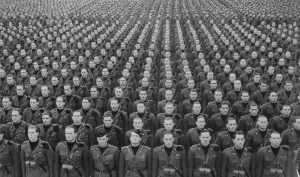 Nevertheless, these notions of inner and outer transformation give rise to a pressing question: how will these transformations manifest, particularly within the political realm? As previously stated, Evola’s writings consistently emphasized the vital role of individual transformation as a prerequisite for significant political and social change. In the midst of the upheaval of the Second World War, Evola believed that fascism, initially in its original Italian form and later in the National Socialist variant, could serve as the political vehicle needed to catalyze the transformation of both the individual and the external nature of Western civilization. However, Evola’s initial optimism waned as he grew disillusioned with contemporary manifestations of fascism, perceiving them as inadequate in their endeavors to revolutionize the inner soul of Western man. Consequently, he began advocating what he termed “super-fascism.” Evola’s concept of “super-fascism” called for a complete revolution of the inner spirit, aiming to reawaken the heroic modality of Being and Becoming that had characterized past eras.
Nevertheless, these notions of inner and outer transformation give rise to a pressing question: how will these transformations manifest, particularly within the political realm? As previously stated, Evola’s writings consistently emphasized the vital role of individual transformation as a prerequisite for significant political and social change. In the midst of the upheaval of the Second World War, Evola believed that fascism, initially in its original Italian form and later in the National Socialist variant, could serve as the political vehicle needed to catalyze the transformation of both the individual and the external nature of Western civilization. However, Evola’s initial optimism waned as he grew disillusioned with contemporary manifestations of fascism, perceiving them as inadequate in their endeavors to revolutionize the inner soul of Western man. Consequently, he began advocating what he termed “super-fascism.” Evola’s concept of “super-fascism” called for a complete revolution of the inner spirit, aiming to reawaken the heroic modality of Being and Becoming that had characterized past eras.
In line with this viewpoint and in relation to the political expression that would accompany genuine metaphysical transformation, Evola regarded the Roman Empire as his political ideal. Furthermore, for Evola, it was the hierarchical order and inherent inegalitarian nature of ancient Rome that resonated most closely with his worldview. In his excellent work Fascism Viewed from the Right, he writes, “The true state will also be hierarchical, especially because it will be able to acknowledge and create respect for the hierarchy of true values, giving primacy to values of a higher order, not material or utilitarian ones, and admitting relevant, legitimate inequalities or differences of social positions, opportunities and dignity.” One of the hallmarks contributing to the magnificence of Western civilization lies in its profound reverence for the natural world. This reverence finds expression in our people’s inclination to mirror the timeless beauty of the cosmic order in both our individual selves and the social structures we establish. More precisely, hierarchy can be described as the recognition and differentiation of individuals based on their capacities.
Throughout history and until quite recently, the hierarchical structure of Western civilization was a reflection of the varying capacities possessed by the men who comprised it. A genuine hierarchy, championed not only by Evola but also by other esteemed figures of the past, considers the varying capacities and abilities of all individuals and organizes its political and social order to organically promote stability and elevate excellence. Those who demonstrate exceptional abilities ascend to the upper echelons of the hierarchical ladder, while all others contribute to the best of their individual capacity. In the glorious epochs of ancient Rome, both during the Republican and Imperial eras, the concept of social mobility held profound significance. What made this even more remarkable was the fact that individuals such as Gaius Marius and Marcus Tullius Cicero emerged from humble origins, rising from lower classes to achieve great prominence. Gaius Marius, a celebrated general, enacted transformative reforms known as the Marian Reforms, which revolutionized the Roman army and contributed significantly to its military successes. Marcus Tullius Cicero, on the other hand, emerged as a renowned orator and philosopher, captivating audiences with his eloquence and wisdom. These historical figures serve as vivid examples of how the ancient Romans esteemed and acknowledged the importance of recognizing and elevating talent within their society.
The inherent martiality of ancient Rome, exemplified by its warrior ethos, serves as the primary manifestation of the inegalitarian hierarchy that characterized Roman civilization. The Romans were a vigorous and martially inclined people, and, as a result, they esteemed and rewarded military excellence. Dr. Ricardo Duchesne, in his exceptional work The Uniqueness of Western Civilization, describes Western civilization as the epitome of the warrior-aristocratic spirit in its purest form. What sets the West, and specifically the ancient Romans, apart from the rest of the world, is their unwavering commitment to the competitive pursuit of honor and the attainment of social status through the acquisition of prestige. This pursuit extends both on and off the battlefield, showcasing their relentless dedication to achieving distinction in various spheres of life. Moreover, this unyielding quest for prestige was not the sole domain of a kinship-based ruling elite but was embraced by a substantial portion of the European peoples with determined zeal. Furthermore, Duchesne argues that the “aristocratic egalitarianism” of the West and Rome played a significant role in their civilizational ascent. In a broader sense, “aristocratic egalitarianism” refers to the tendency of the Western aristocracy throughout history to elevate the most exceptional individuals to the highest positions within its hierarchical structure. This practice was particularly evident in ancient civilizations like Greece and Rome, where the aristocrats were those men who showcased exceptional prowess and excellence in warfare.
Moreover, the structuring of early Roman society in the form of the Männerbund (German: “war-band”), which originated from the legacy of its founding by early Indo-European warriors, played a significant role not only in its civilizational and military successes but also in shaping the inherently inegalitarian nature of its political order, which placed a high value on martial prowess and excellence. In Men Among the Ruins, Evola writes, “The substance of every true and stable political organism is something resembling an Order, a Männerbund in charge of the principle of the imperium, comprising men who see loyalty as the basis of their honor.” According to Evola, the Männerbund lies at the very core of every organic and enduring political structure, shaping its foundation and providing it with a sense of stability and purpose.
The Männerbund, with its dynamic and ever-evolving forms and functions, held a prominent position as the nucleus of all Indo-European-founded societies in Europe. Its form was expressed in a dizzying array of groups, from the ancient Germanic tribes to the Dorians of Hellenic Greece, and notably to the Latini tribes who established ancient Rome. The Männerbund represented a close-knit brotherhood of men bound together by a shared martiality, where loyalty was revered as the bedrock of integrity. These men shouldered the responsibility of safeguarding the sovereign agency of the body politic, upholding its authority and protecting its interests. The Männerbund also emphasized the ancestral nature of religion, rooted in the veneration and adoration of a shared heritage, thus highlighting the importance of kinship in early Europe. Viewed from an academic perspective, the Germanic term Männerbund, initially introduced by anthropologist Heinrich Schurtzin in 1902, serves as a scholarly adaptation and reinterpretation of the much older Proto-Indo-European concept of Kóryos (“war-party”). The contributions of Otto Höfler, the distinguished Austrian philologist and Germanist, have provided particularly illuminating insights into the significance of the Männerbund. Höfler asserted that the Männerbund held a central position in the social organization of all Germanic and Aryan (Indo-European) societies, guiding young men in preparation for the responsibilities of war and governance. Through the Männerbund, these men were instilled with martial virtues such as courage and honor, which were essential for the preservation and well-being of their respective nations and communities. Julius Evola posits the Männerbund was an initiatic warrior-brotherhood which represented transformation, “the quality of man as vir (as the Romans would say), and not as simple homo.” In Latin vir means “man” but is associated with the concept of virtus (Latin: “virtue”). As such, all deserving young men who embodied the qualities of courage, honor, strength, and loyalty, would be initiated into manhood via the Männerbund, becoming members of the body politic. Höfler further emphasized that the continuity of the Männerbund created a lasting legacy, contributing to political stability and sustained prosperity across all Indo-European-descended nations and peoples. As Evola poignantly laments, the disappearance of the Männerbund, in both its tangible manifestation and spiritual essence, stands as a notable factor contributing to the decline of Western civilization. The Männerbund served as a transformative forge, shaping boys into warrior men, and it was from these warriors that the ultimate political authority and governance of the body politic emanated.
In ancient Rome, the essence of the Männerbund found expression in the competitive struggles of the Roman patricians, who wielded the divinely inspired political authority of imperium. Evola wisely asserts that ancient Rome’s prosperity and civilizational triumph were deeply rooted in its embrace of the eternal masculine and vitalistic Olympian energy, which found metaphysical embodiment in the potent concept of imperium. Of the eternal metaphysical nature of imperium, Evola says, “There is a superior unity of all those who, despite all, fight in different parts of the world the same battle, lead the same revolt, and are the bearers of the same intangible Tradition. These forces appear to be scattered and isolated in the world, and yet are inexorably connected by a common essence that is meant to preserve the absolute ideal of the Imperium and to work for its return.” Relatedly, Evola believed that by embracing, or rather reembracing the concept of imperium, Western civilization had the potential to restore, revitalize, and regenerate itself.
According to the immensely influential French scholar Georges Dumézil, in his superb work Mitra-Varuna, and its analysis of comparative mythology, the commonality that underpins all Indo-European religion, and in turn concepts of the political, is a cosmically derived division of authority. For Evola, the Roman Empire, and its concept of imperium was the purest historical manifestation of this perennial metaphysical truth. From the Latin imperare (“to command”), the Männerbund executes the sacred duty of imperium. The concept of imperium, first codified by the ancient Romans, was the formalization of the concept of sovereignty, as conceptualized by our ancient Indo-European ancestors. For our Indo-European brethren, and the Romans more specifically, imperium was a manly duty, the exercise of divine and earthly authority, and thus both sacred and profane in nature. It is crucial to recognize that the current disconnection between the sacred (divine) and the profane (secular), as observed in the contemporary era, was virtually absent throughout most of Western history and is a product of the bourgeois mindset. The imperium of the body politic, of the externalized authority to rule, was a mirroring of the divine order which governs the cosmos. Within this context, man and his authority were the physical personification of the divinely inspired, Indo-European notion of sovereign order. On Rome, and its embrace of both the concepts of the Männerbund and imperium, and in relation to the type of society that such a primal metaphysical essence would generate, Evola eloquently states, “The ideal of conquering virility was embodied in Rome. This virility was manifested in the doctrine of the state and in the notions of auctoritas [Latin: “authority”] and imperium.” In essence, the ancient Romans masterfully and sublimely tapped into the eternal cosmic principle of Order, establishing a political framework that cultivated individual and collective transformation through the trials of heroic struggle. In short, this, in turn, gave rise to an organic state that mirrored the elevated and transcendent nature of reality.
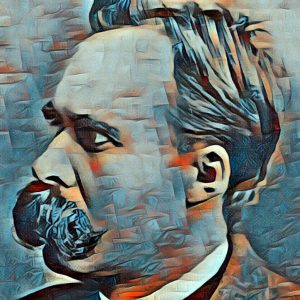 Harking back again to Friedrich Nietzsche and in relation to the beliefs of Evola, the ultimate goal of every political state is the deliberate cultivation of the higher type, the Übermensch (German: “Overman”). For Evola, the primordial metaphysical essence of ancient Rome served as a vessel through which the transcendent, higher type of both man and the cosmically inspired earthly political order found its clearest and most pristine form of expression. Within this framework, each element within the organic political entity serves a dual role: to support the individual in striving for excellence in relation to his hierarchical position and to the best of his ability, and to collectively establish a political order that guarantees not only survival but also an elevated form of existence for the totality.
Harking back again to Friedrich Nietzsche and in relation to the beliefs of Evola, the ultimate goal of every political state is the deliberate cultivation of the higher type, the Übermensch (German: “Overman”). For Evola, the primordial metaphysical essence of ancient Rome served as a vessel through which the transcendent, higher type of both man and the cosmically inspired earthly political order found its clearest and most pristine form of expression. Within this framework, each element within the organic political entity serves a dual role: to support the individual in striving for excellence in relation to his hierarchical position and to the best of his ability, and to collectively establish a political order that guarantees not only survival but also an elevated form of existence for the totality.
The acquisitive bourgeois mentality, with its total exhalation of all things material, its sanctification of safety, security, comfort, and the atomized sense of individualism engendered by material excess serve as the root causes of the degeneration and decline of Western civilization. In order to revitalize the West, we must shed the pathologizing perversity of the petit bourgeois worldview and embrace the heroic ethos of our ancestral past. Let us once again explore the historical past, not to merely study it mechanistically but inspirationally, to use its time-tested lessons as a tool to resurrect Western greatness. Let us rise above the moribund material world, and instead seek individual vitality and civilizational rebirth through the transcendence of the heroic struggle, and the inegalitarian hierarchical structuring of the political order that this would engender. Let us strive towards the restoration and reformulation of the sacred Männerbund, endeavoring to resurrect the timeless precepts of imperium. As Evola proclaimed, the path to civilizational transformation begins with the individual, so let us work towards the building of a New Rome within ourselves, and if we are strong enough, the world will follow suit.
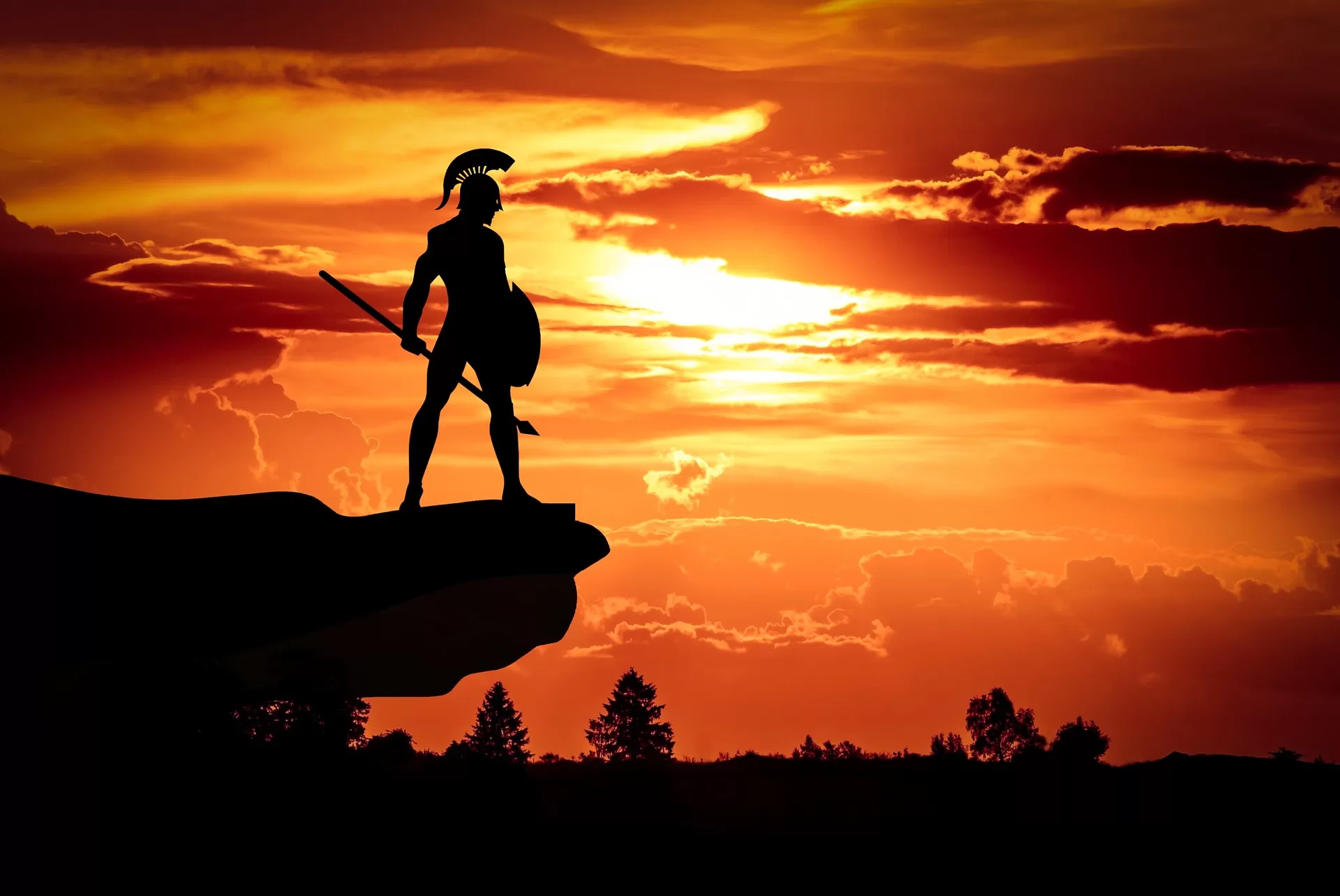
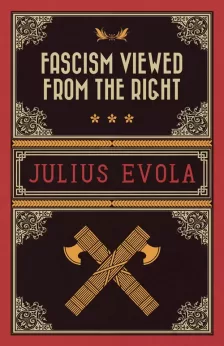
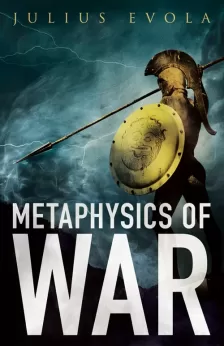







Hi, been watching Arktos on telegram and have been impressed.
I loved this! Triarii’s “We are Rome” was going through my head while reading. We are Rome!